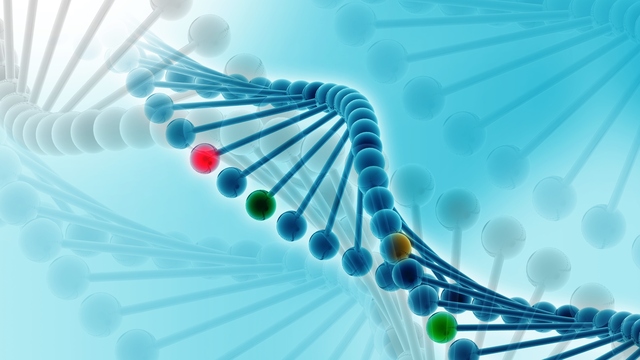 Divakaran Dileep/PhotoSpin
Divakaran Dileep/PhotoSpin
Genes are coded messages that tell cells how to behave. They control how our bodies grow and develop.
Genes are pieces of DNA that contain instructions on how to make proteins that the body needs to function, when to destroy damaged cells, and how to keep cells in balance.
Genes are responsible for determining hair and eye color, height, and your chances of getting certain diseases such as cancer.
Cancer is a disease caused by abnormal gene function. Cancer genes can be passed on to children if there is a mistake or fault in an egg or sperm cell.
All cancers develop because something has gone wrong or changed at some point in our life. A gene change can be caused by exposures to cancer-causing agents, also known as carcinogens, such as cigarette smoke or sunlight.
There are two types of cancer: inherited and non-inherited.
Inherited cancer is caused as a result of the genes you were born with. Genetic determinants of cancer are abnormal genes passed along from generation to generation. Inherited cancer means you have a gene or genes that can lead to cancer.
Non-inherited cancer is caused by a gene change that happens during your lifetime. Cancer caused by gene changes due to exposure cannot be passed on to your offspring.
There are two types of mutations: inherited and acquired (somatic).
An inherited mutation is present in the egg or sperm that forms a baby. A mutation is an abnormal change in a gene.
After the egg is fertilized by the sperm, it creates a zygote, which is a single cell that divides to create a fetus.
All cells in the body are formed from the first cell, the zygote. So, every cell in the body, including eggs or sperm cells, will carry the mutation and can potentially be passed down to the next generation.
We all have two copies of most genes, one from each parent. When someone inherits an abnormal copy in one of their genes, their cells have one mutation.
If the other copy in the gene stops working, the entire gene can stop functioning. If the gene that stops working was a cancer susceptibility gene, then you will be at risk of developing cancer.
An acquired, or somatic, mutation is not present in the zygote but rather is acquired later in life.
Acquired mutations occur in one specific cell and are passed on to any new cells that are on offspring of the cell. They are not present in every cell of the body.
An acquired mutation is not present in egg or sperm cells and cannot be passed on to the next generation.
A phenomenon known as family cancer syndrome attempts to explain why and how cancer runs in families. Family cancer syndrome occurs when multiple cases of cancer occur within a family due to inherited faulty genes, or family members have been exposed to common toxins such as cigarette smoke.
When cancer runs in families, it can be due to a change in environment, or a faulty inherited gene. Factors such as age and exposure must be evaluated to determine the nature of the cancer, inherited or acquired.
For example, colon cancer is rare for people under the age of 30. If you have two or more such cases in close relatives, this pattern could be a sign of inherited cancer.
However, if two or more relatives develop prostate cancer after the age of 80, which is common, it is not likely that their diagnosis is due to an inherited gene. A good example of inherited cancer is breast cancer that runs in families, caused by the BRCA1 and BRCA2 genes.
Sources:
Cancer research UK. About genes, cancer and family history. February 20 2015.
http://www.cancerresearchuk.org/about-cancer/cancers-in-general/causes-symptoms/genes-and-inherited-cancer-risk/about-genes-cancer-and-family-history
American Cancer Society. Family cancer syndromes. February 20 2015.
http://www.cancer.org/cancer/cancercauses/geneticsandcancer/heredity-and-cancer
Reviewed February 23, 2015
by Michele Blacksberg RN
Edited by Jody Smith





Add a CommentComments
There are no comments yet. Be the first one and get the conversation started!